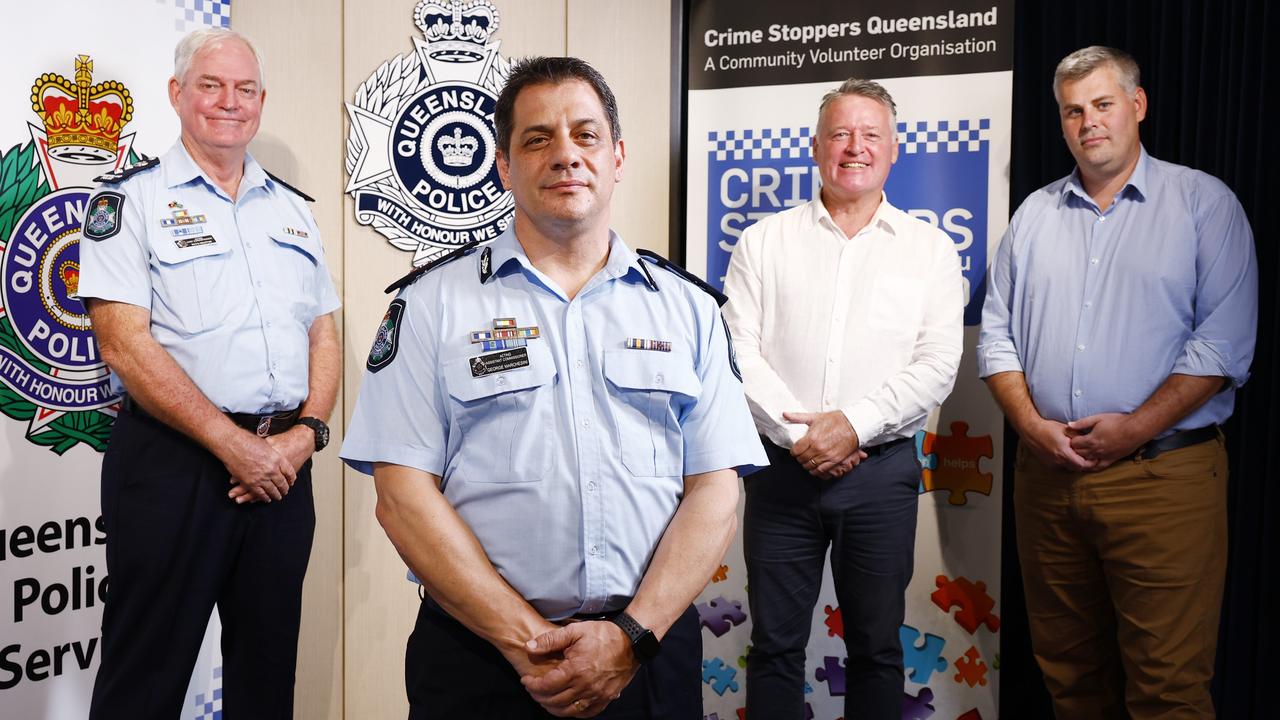Police rollout Operation Victor Unison targeting youth crime hotspots
Police are rolling out a campaign to disrupt youth offender activities to help prevent them from breaking into homes and causing havoc in our neighbourhoods. Here’s how it will work.
Police & Courts
Don't miss out on the headlines from Police & Courts. Followed categories will be added to My News.
Toowoomba’s teen criminals will have to share their favourite hangout spots with uniformed officers as police roll out a high-visibility operation to disrupt youth offending.
Operation Victor Unison launched on Wednesday and will see police running extra patrols of youth crime hotspots.
It is an extension of a similar operation police ran over the Christmas period, that saw more than 2800 people charged with more than 6500 offences.
The public can expect to see more police walking through our shopping centres, patrolling problem areas at night and conducting bail checks.
Speaking with The Chronicle, the head of the Youth Justice Task Force QPS Acting Assistant Commissioner George Marchesini said the operation was part of a suite of initiatives needed to address an escalation in youth crime.
“We just can’t keep throwing funds at this,” he said.
“We are going to use any reform to the best of our ability.”

The operation includes an expansion of the State Flying Squad, a reactionary group of officers will be deployed in communities experiencing spikes in youth crime and look at how the police, Youth Justice, Child Safety and other community stakeholders can work more effectively.
“When we go into a community we will look at what the challenges are, what we are already delivering on the ground, where we are working in silos and what we need to do better,” Mr Marchesini said.
“We will be working with the Department of Youth Justice on prevention and disruption.”
As police work to break the cycle of offending, Mr Marchesini said the Youth Justice Task Force was also looking at how to move offenders through the courts faster.
Part of this involves an expansion of a trial testing the viability of GPS trackers on youth offenders.
That trial is coming to Toowoomba and it is hoped that a wider rollout would ease pressure on Queensland’s overcrowded watch-houses and detention centres.
Just eight offenders have been fitted with a GPS tracker during the trial period.
“While it was only a small cohort that ended up with electronic monitoring devices, it certainly was a tool that helped those offenders desisting from committing further offences,” Mr Marchesini said.
“We have to start to get ahead of the game and we don’t want to see children in watch-houses or on lengthy periods of remand.”
Mr Marchesini said the wider use of GPS trackers could see more children serving their sentence in the community where they have better access to rehabilitation, training and education.
“We want to see young people come out (of the Justice System) with a skill set so that they can be of use in the community,” he said.
“There is no single solution and the police cannot do it alone.
“We need to focus on all parts of the system.”









